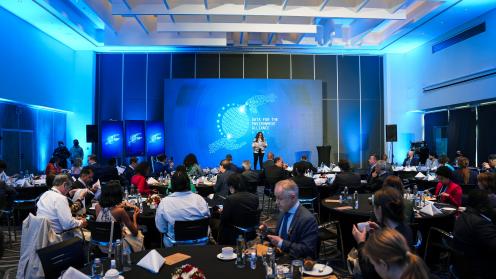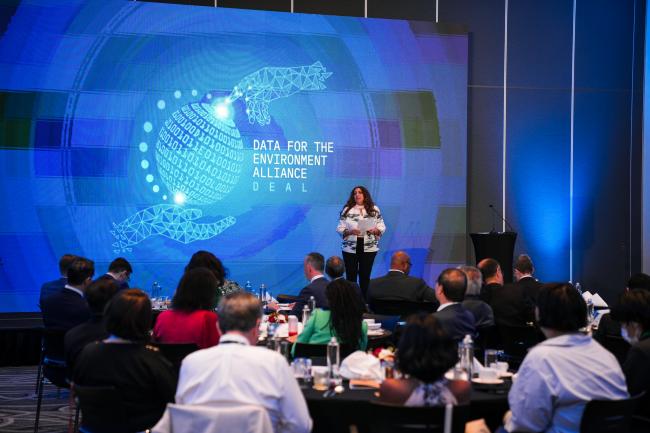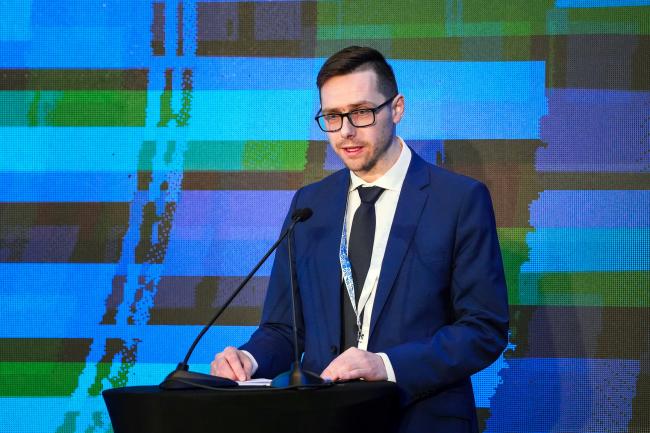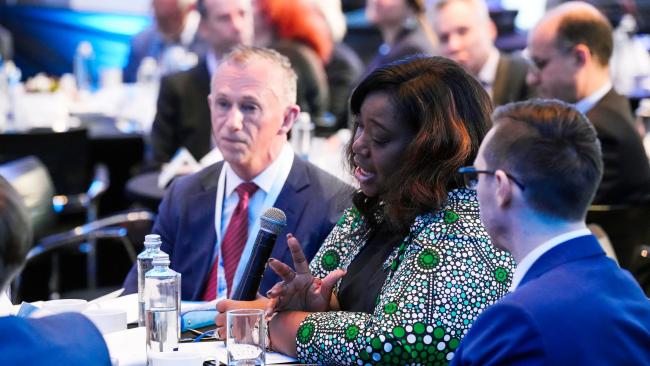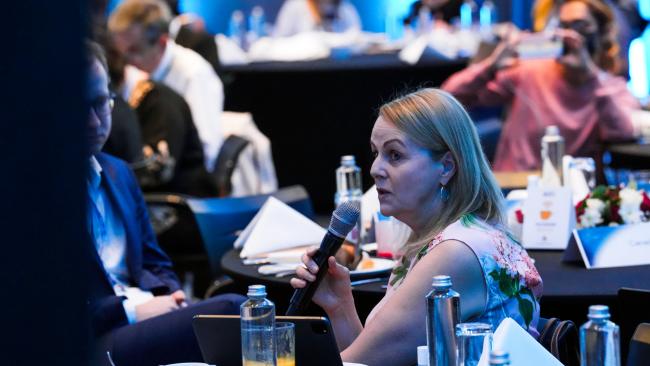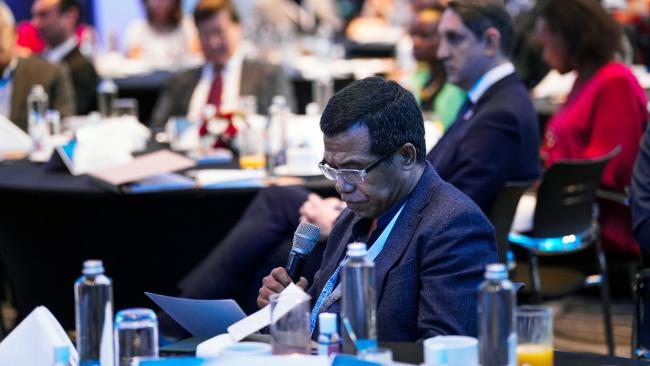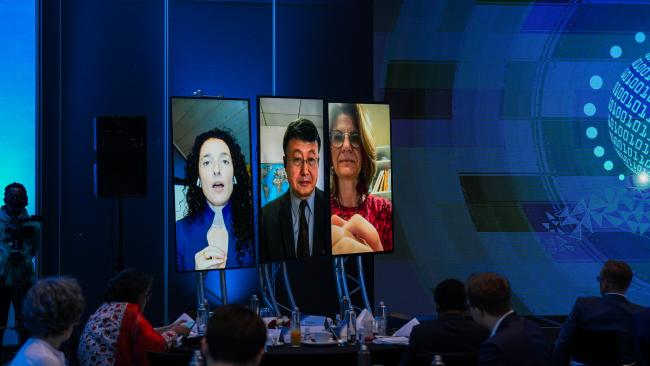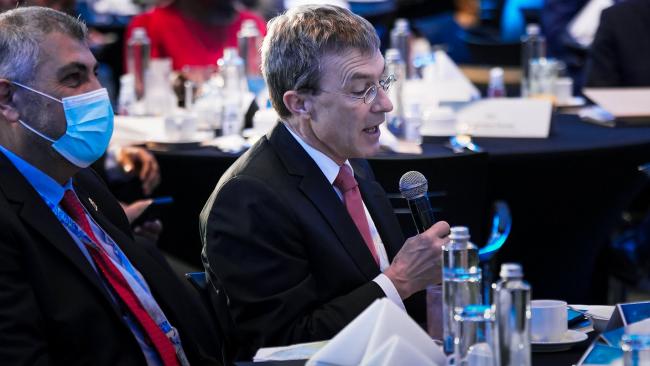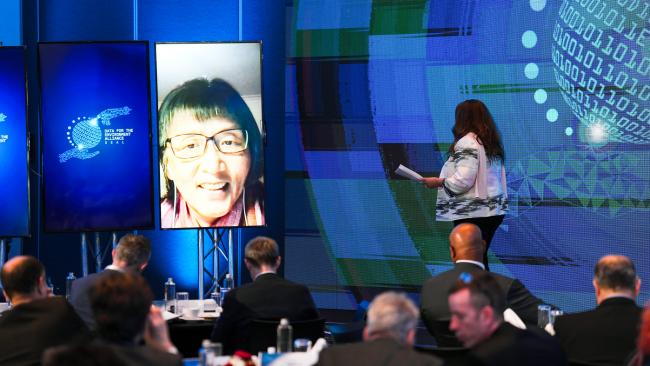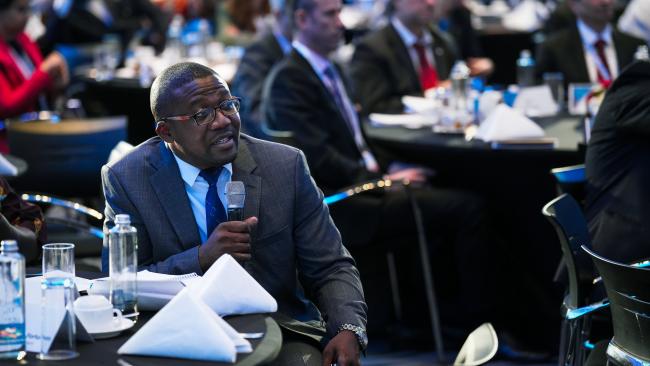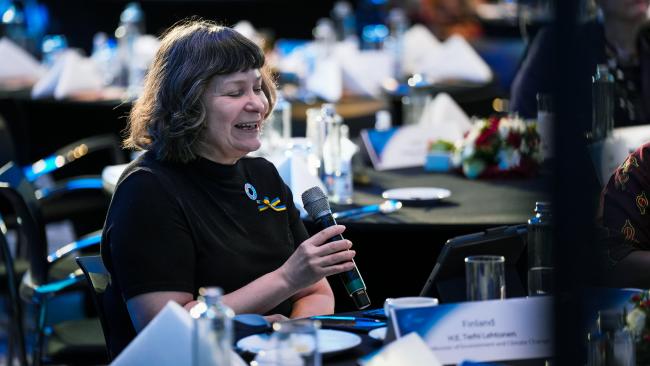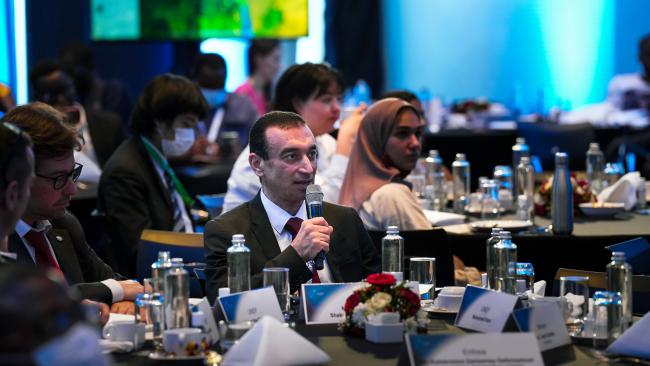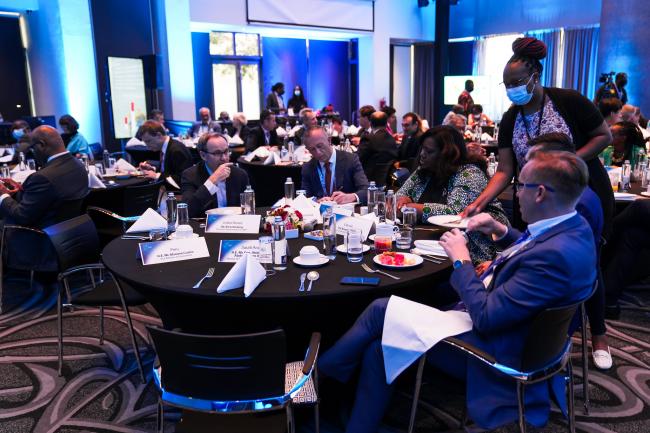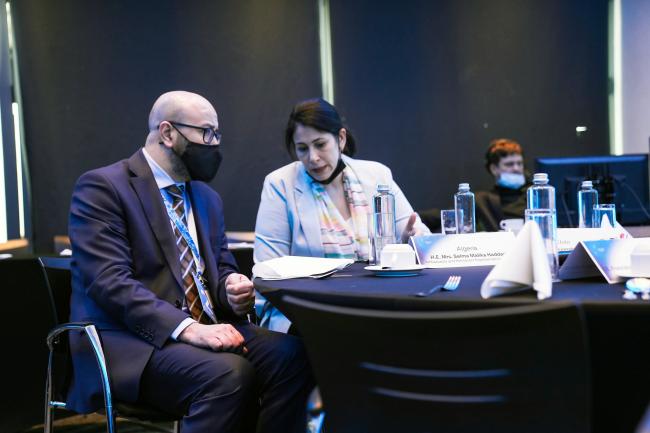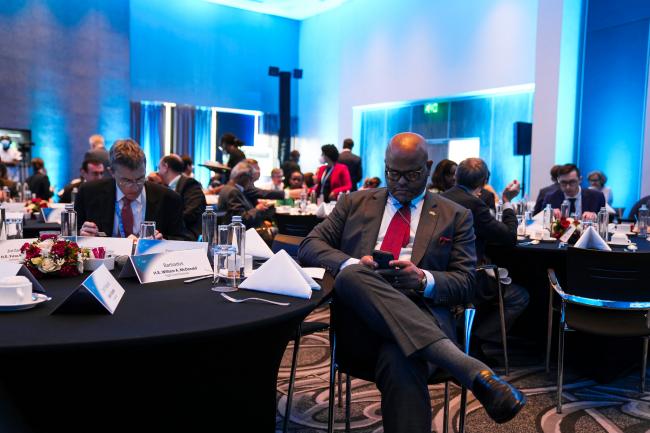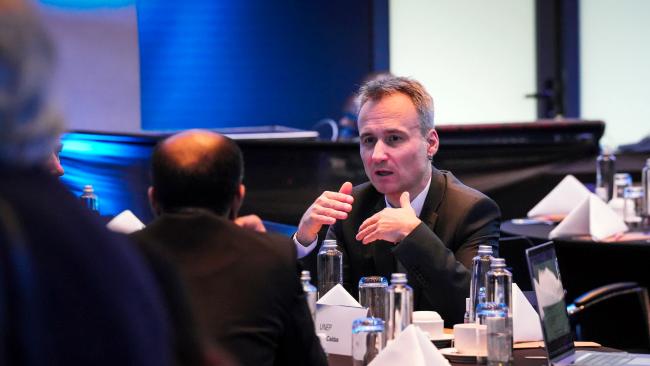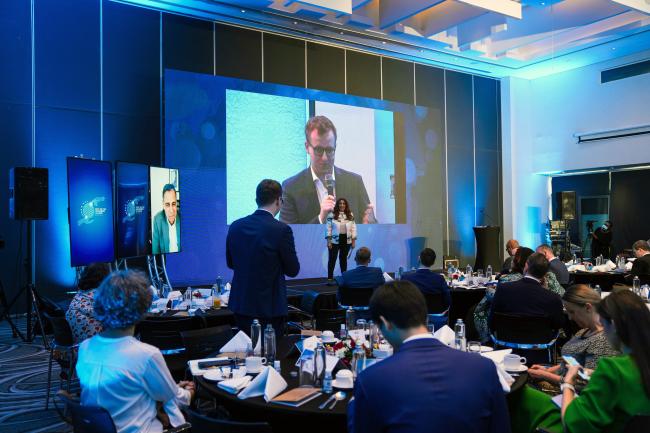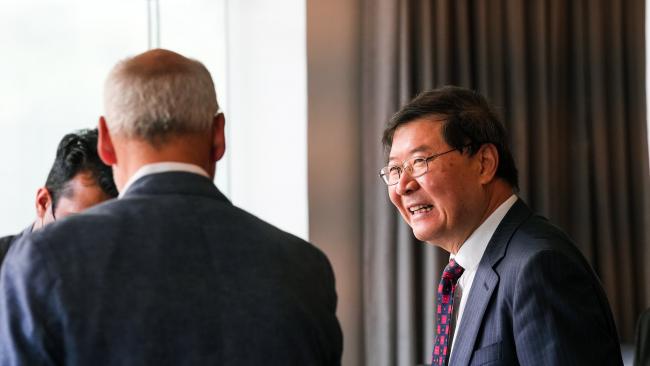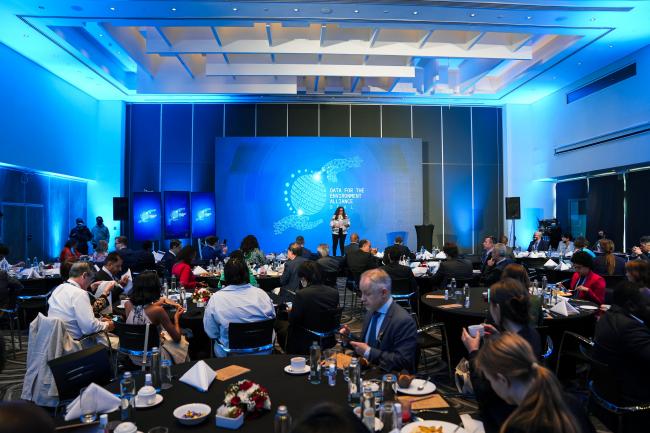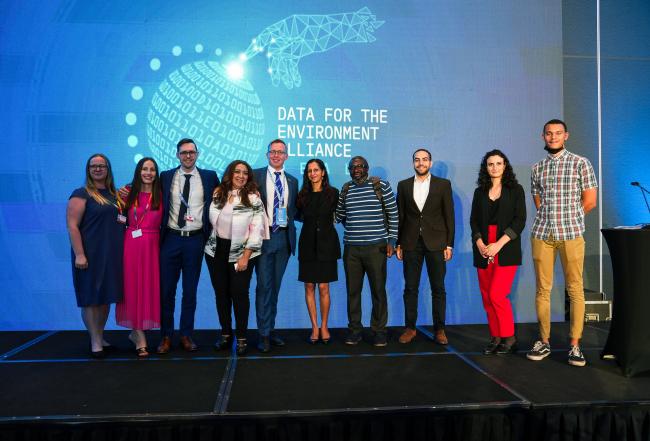About
The event formally launched the Data for the Environment Alliance, which promotes cooperation and synergies on environmental data and solutions between state and non-state actors.
Final report
Summary report 4 March 2022
All coverage
The increasing complexity and severity of environmental challenges and the triple planetary crisis of climate change, biodiversity loss, and pollution require Big Data, or data sets that are too large or complex for traditional data-processing application software to deal with. Recognizing this, the fourth session of the UN Environment Assembly (UNEA-4) in 2019 committed to support a global environmental data strategy by 2025. Out of this commitment came the Data for the Environment Alliance (DEAL), which was first announced by the Government of Estonia at the Glasgow Climate Change Conference in 2021 and formally launched at UNEA-5 in early 2022. The Big Data for the Planet Breakfast and Ministerial Dialogue, which was organized by the UN Environment Programme’s (UNEP) Science-Policy-Business Forum (SPBF) on the sidelines of the UNEP@50 Special Session of UNEA, convened on 4 March in Nairobi, Kenya, with both in-person and virtual participation.
A Big Data Revolution for the Planet
Shereen Zorba, Head, Global Secretariat, UNEP SPBF, moderated the event. She called for more robust science-based decision making, stronger accountability, and greater transparency and inclusion to meet environmental targets. She stated that “we cannot manage what we cannot measure,” and called for better access to reliable, real-time data to articulate more clearly the impact of human actions.
Kaja Kallas, Prime Minister of Estonia, said the first international cooperation projects under DEAL are already underway in Kenya and Montenegro, with financial support from Estonia. She explained the projects will focus, in part, on data related to climate change and early warning systems.
Kaupo Heinma, Deputy Secretary General, Ministry of the Environment, Estonia, said DEAL is a member State-led initiative that: links state and non-state actors; promotes cooperation and synergies on environmental data and solutions with the latest technology; and aims to inform the various multilateral environmental agreements.
Sonja Leighton-Kone, Acting Deputy Executive Director, UNEP, said we have transformed into a society where digitizing information is critical. She explained that Big Data helps member States make critical decisions, demonstrates the need for investing in the environment, and helps level the playing field with respect to accessing information.
Alexandre Caldas, Chief, Country Outreach, Technology, Innovation and Big Data, UNEP, noted UNEP’s recent launch of the first phase of the World Environment Situation Room (WESR)—a Big Data knowledge platform that aims to transform global governance and multilateral environmental action.
Dialogue and Policy Insights: Florika Fink-Hooijer, Director General for the Environment, European Commission, discussed, inter alia: Horizon Europe, which is a funding programme for research and innovation; Destination Earth, which aims to simulate a high-precision digital model of the Earth to model, monitor, and simulate natural phenomena and related human activities; and digital passports for products, with information on carbon and environmental footprints, and on the content of recycled materials and hazardous substances.
Demétrio do Amaral de Carvalho, State Secretary for the Environment, Timor-Leste, said sharing information can help communities with limited resources cope with environmental challenges. He said updated COVID-19 information shared by health organizations helped his country design mitigation strategies before peak impact.
Where We Are and Where We Need to Be
Yana Gevorgyan, Secretariat Director, Group on Earth Observations, discussed the ways in which harnessing the Big Data revolution can put us on track to meet environmental targets. She said earth observations provide policymakers with robust tools to make informed decisions, implement coherent policies, and monitor and measure their effectiveness.
Laurence Monnoyer Smith, Director, Space Climate Observatory (SCO), discussed challenges and opportunities in aggregating, packaging, and using Big Data to fight climate change. She explained SCO provides state-of-the-art tools that transform data into solutions for adaptation and mitigation and help scale local monitoring to the international level.
Gensuo Jia, Deputy Director General, Chinese Academy of Sciences (CAS), International Research Center of Big Data for the Sustainable Development Goals, said large-scale, cross-cutting issues require Big Data, and that while a significant amount of data emerges every second, it is isolated, not comparable, and not ready to be used for monitoring purposes.
Dialogue and Policy Insights: Franz Perrez, Ambassador for the Environment and Head of Delegation, Switzerland, said DEAL is particularly relevant at this time, given recent UNEA decisions on, for example, the establishment of a science-policy panel on chemicals and waste.
Gyubin Hwang, Spokesperson, Children and Youth Major Group at UNEP, said governments have a responsibility “to work with, not for, the private sector” to develop regulations that protect citizens’ rights.
The Solutions that Will Take Us There
Empowering Technologies, Tools, and Innovation: Hichem Maya, Managing Director, Consumer Packaged Goods, Google, presented the Google Earth Engine—a collection of real-time imagery that provides actionable insight to what is happening on the ground. He described how it helps monitor and predict floods and droughts, as well as provides the data to organizations so they can act on, among others, supply chain disruptions, crop management, and impacts on farmers.
Edan Dionne, Vice President, Corporate Environmental Affairs, IBM, noted IBM’s collaboration with UNEP, using marine litter as a case study. She cited the use of modeling and artificial intelligence to identify plastic pollution along coastal areas, and the need to accelerate scaling up of this modeling.
Charity Wayua, Senior Research Manager, IBM Research Africa, emphasized technology that is equitable, accessible, and ethical. She pointed to research labs in Kenya and South Africa that tap into local talent so young men and women can participate in, among other things, climate risk impact modeling.
Financing and the Role of Business: Christopher Hurst, Director General, European Investment Bank (EIB), described EIB’s use of data to monitor its projects, such as measuring forestry projects and land take around mining projects. He underscored the need for high-performance digital infrastructure that is safe from cyberthreats, and said countries require assistance in this regard.
Jürgen Weichenberger, Chief Data Scientist, Accenture, underscored the need to encourage working with entire sectors to create transparency and accountability along the whole value chain, not just in terms of carbon emissions, but regarding resource efficiency as well.
Dialogue and Policy Insights: Nqobizitha Mangaliso Ndlovu, Minister of Environment, Climate, Tourism and Hospitality Industry, Zimbabwe, asked how platforms such as DEAL can be used to ensure high-performance digital platforms in developing countries. He called for focusing on skills exchange and bridging the digital divide.
Terhi Lehtonen, State Secretary, Ministry of the Environment and Climate Change, Finland, mentioned LUMI – a supercomputer for artificial intelligence – and the Finnish Ecosystem Observatory, which will help realize the goals of the post-2020 global biodiversity framework and the 2030 Agenda for Sustainable Development.
Mohamed Abdelraouf, Chair, Major Groups and Stakeholders at UNEP, underscored the need to: focus more on local conditions; complement the data the private sector collects; and ensure local populations, including farmers and Indigenous groups, are involved in analyzing data.
Photos courtesy of UNEP SPBF. Funding for Earth Negotiations Bulletin coverage of this event has been provided by UNEP SPBF.
View past and future events
Past event
1st Meeting of the UNEP Open-ended Committee of Permanent Representatives (OECPR-1)
Past event
UNEA-1
Past event
2nd Meeting of the UNEP OECPR
Past event
UNEA-2
Past event
UNEA-3
Past event
1st Meeting of the Ad Hoc Open-Ended Expert Group on Marine Litter and Microplastics
Past event
Negotiation of the Summary for Policy Makers of the 6th Global Environment Outlook (GEO-6)
Past event
4th Meeting of the OECPR and 4th Session of UNEA
Past event
2nd Global Session UN Science-Policy-Business Forum on the Environment
Past event
4th Meeting of the Ad-hoc Open-ended Expert Group on Marine Litter and Microplastics (AHEG-4)
Past event
Global Major Groups and Stakeholders Forum (GMGSF)
Past event
Youth Environment Assembly (YEA)
Past event
5th Meeting of the Open-Ended Committee of Permanent Representatives to UNEP (Online Session)
Past event
UN Science-Policy-Business Forum on the Environment (2021)
Past event
UNEA-5 (Online Session)
Past event
Inaugural Regional Session of the UNEP Science-Policy-Business Forum for Asia and the Pacific (AP-SPBF 2021)
Past event
Online Global Major Groups and Stakeholders Forum (GMGSF)
Past event
Youth Environment Assembly 2022
Past event
UNEA-5.2, OECPR-5.2 and UNEP@50
Past event
2nd UNEA Cities and Regions Summit
Past event
UNEA Flagship Side Events
Past event
Big Data for the Planet Breakfast and Ministerial Dialogue: The Next 50 Years
Past event
OEWG1: Science-Policy Panel to Contribute Further to the Sound Management of Chemicals and Waste and to Prevent Pollution
Past event
OEWG1-2: Science-Policy Panel to Contribute Further to the Sound Management of Chemicals and Waste and to Prevent Pollution
Past event
2nd Meeting of the Ad Hoc Open-ended Working Group on a Science-Policy Panel to Contribute Further to the Sound Management of Chemicals and Waste and to Prevent Pollution
Past event
UNEA-6 and OECPR-6
Past event
Global Major Groups and Stakeholders Forum (GMGSF) at UNEA-6
Past event
UN Science-Policy-Business Forum on the Environment Special Sessions at UNEA-6
Past event
